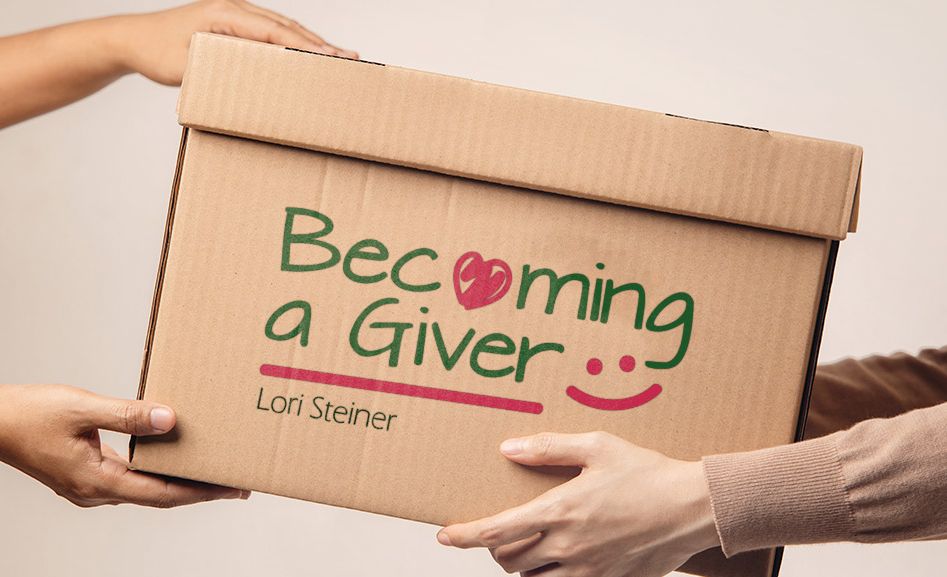
Causes of Self-Induced Suffering, Part 2
On the contrary, the purpose of suffering that follows a transgression or a wrongdoing is to bring a person to the point of self-evaluation...

On the contrary, the purpose of suffering that follows a transgression or a wrongdoing is to bring a person to the point of self-evaluation, or soul searching.
2. Negligence in performing a good deed
Rabbi Chaim of Chernovitz[1] teaches that good deeds are the food, clothing, and shelter of the soul. The soul is a spark of Godliness, whom we allude to as ‘the King’s daughter.’ One who is negligent in performing good deeds resembles a crass country bumpkin that marries a king’s daughter. He should feed his dainty bride fine farina muffins, but he serves her stale black barley bread. Instead of clothing her in silk robes, he dresses her in a burlap sap. He changes her soft bed of silk sheets for a mattress of hay and straw. When the princess is incapable of further suffering, she runs home to the palace. Once the king sees how miserably mistreated she is, he takes swift retribution on his country bumpkin son-in-law.
The soul thrives on the spiritual nourishment of good deeds. When the body neglects the soul, the soul cries out to the Almighty, who ultimately sends some form of aggravation or suffering as a reminder to the body, the allegorical crass son-in-law, not to neglect the needs of the soul, the allegorical king’s daughter.
By trying our best to perform good deeds, we prevent needless suffering. When we prevent needless suffering, we move up the trail to tranquility.
3. Negligence in developing one’s spiritual self
Animals eat, drink, and procreate. They also live positive, productive lives, providing society with meat, milk, wool, leather, and fur. Many types of animals serve as means of labor, transportation, and recreation. Dogs fulfill important functions, such as aiding blind people, serving in police units, and participating in rescue missions.
A human who simply eats, drinks, and procreates, despite the fact that he or she has a productive job and utilizes leisure time for sports or other positive recreational activities, is still no better than a horse. Horses eat, drink, and procreate, do productive tasks on farms and cattle ranches, and serve as a source of recreational enjoyment to their owners. So, is a person superior to a horse?
A person void of spiritual ambitions – a thirst for truth and a yearning for self-realization – is no better than a horse. A horse, like a human, has a basic animal soul. The Divine spirit and soul, which God instills in a human, is the sole point of human superiority over the animal.
When humans utilize their Divine spirit and soul to rise above base inclinations, to seek the Almighty, and to behave in a godly fashion, they begin to fulfill their real purpose in life. But, when people misuse or neglect their Divine spirit and soul, they are inferior to an animal.
An unblemished soul – one who refrains from transgressing and does God’s will on a daily basis – possesses a Divine aura which is reflected by the eyes and the forehead, and casts fear on all of creation, even on man-eating animals.
God blessed Noach after the flood and said, “I have instilled the fear of you in the animals on land, in the birds in the sky, in the creatures on earth, and in the fish in the sea” (Bereishit 9:2). When people sin, or when they do nothing to develop their spiritual self, their Divine soul tarnishes. A tarnished soul lacks the power to generate the holy aura of Divine light. Animals and other creatures have no fear of a human being devoid of the Divine aura.
The Divine soul is a part of God within us, the spiritual platform that elevates a human above the level of an animal. If the soul is misused or uncultivated, then the human loses his spiritual advantage over the animal.
Misused Potential: “Using a neurosurgical scalpel for peeling potatoes doesn’t make the potatoes smart; it only dulls the scalpel.” Rabbi Lazer Brody, “Rabbi Rambo Says…” (The Jewish Post and News, September 24, 2003).
Imagine that a custodian of a hospital enters the operating room, and takes one of the brain surgeon’s fine sterile scalpels for peeling an apple. If caught in the act, such a custodian would surely lose his job. Using an expensive precision instrument for such a mundane task is not only a terrible waste – it’s a severe degradation.
By the same token, demoting the soul from its lofty spiritual level to the grade of a mere battery that triggers basic emotions and bodily functions is a bitter insult. The degraded soul cries out bitterly before God, “I can’t live within a human animal.” In turn, the person with the abused soul soon experiences some form of abuse – derision, insult, or embarrassment.
4. Wrongdoing
God frequently sends a person aggravation or suffering as the result of some transgression or wrongdoing. Again, this is certainly not a form of punishment. On the contrary, the purpose of suffering that follows a transgression or a wrongdoing is to bring a person to the point of self-evaluation, or soul searching.
Soul searching is the first step toward atoning for a wrongdoing. Atonement cleanses the soul. A cleansed soul is a suitable vessel for Divine light. The more Divine light a soul absorbs, the closer it gets to God. As such, the suffering that triggered the initial self-evaluation is a gift from Heaven designed to return a stray soul to the proximity of God.
The Almighty therefore uses suffering as a spiritual vacuum cleaner whose task is to remove the old dust swept under a person’s spiritual rug. A house may be satisfactory with no visible dirt, but a soul must be kept spotlessly clean inside and out.
5. Sadness and ingratitude
Sadness and ingratitude induce suffering.
If people would ponder the myriad of miracles that the Almighty performs for them personally each minute of the day, they would certainly dance for joy.
Sad and depressed people quickly forget, or fail to acknowledge, all the good that the Almighty does for them. The average adult heart pumps 100,000 times a day. The average adult lungs breathe 20,000 times a day. Each heartbeat and each breath are a gift from God. Every command from the brain via an amazing nerve impulse to a part of the body is a Divine miracle, and our brain send out billions of these commands every day. A human with a functioning brain, heart, eyes, limbs, and lungs owes God several billion thanks each day, even before counting the endless number of additional blessings, such as family, food, clothing, and shelter.
No mortal can possibly express sufficient gratitude to God. We humans become gravely insulted when a spouse, friend, or neighbor doesn’t properly thank us for one small favor. Many of us live by a double moral standard – we demand a lot more respect and gratitude from others than we’re willing to give to God.
The root cause of sadness is ingratitude, and ingratitude is an insult to God. If a person were to insult a mortal king, he or she would face severe retribution. Our loving King in Heaven doesn’t punish, He educates. God engineers that people behave toward us in the same manner that we behave toward Him. For example, if our children or our spouses are ungrateful or disrespectful to us, then we have probably exhibited ingratitude or disrespect toward the Almighty. The ATFAT principle – A Turn For A Turn – is God’s way of teaching His children.
To be continued…
(The Trail to Tranquility is available in the Breslev Store.)
* * *
[1] Late 18th Century CE Chassidic master, author of Be’er Maim Chaim and leading disciple of Rabbi Michal of Zlatchov












Tell us what you think!
Thank you for your comment!
It will be published after approval by the Editor.